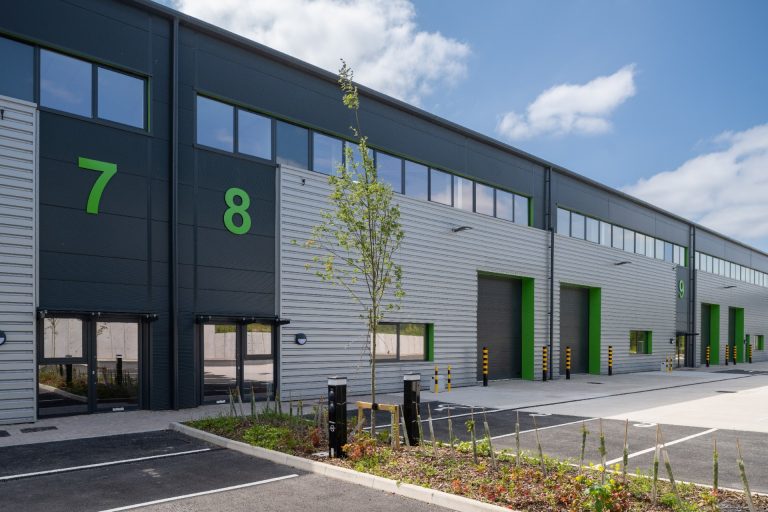Chesterfield IT support business acquires counterpart
Rushton Hickman makes associate director promotion
Construction begins at Leicestershire’s first garden village
Wild Rutland names renowned local conservationist as advisor
Wild Rutland, the 1,200-acre wildlife and nature reserve planned for Oakham, has named local and renowned conservationist Tim Appleton MBE as an advisor to the project.
Best known not only as the instigator of the world-famous Rutland Water nature reserve, where as reserve manager he took it to international status, but also as the founder of the renowned former Birdfair started in 1989 which has so far raised over £42 million, Tim’s vast experience and credentials in working with nature has given him a keen understanding of the impact of populations on wildlife, which he now addresses as a committed supporter of sustainable eco-tourism.
His work in the field alongside his local expertise means Tim’s insight and advice are hugely valuable to Wild Rutland – which is aiming to sympathetically establish a wildlife, education and leisure destination that is a centre of excellence for conservation, breeding and research of extinct and threatened species in the UK.
Following Wild Rutland’s first public exhibition in March, where it revealed its early plans to residents, it is now developing its full planning application for submission to Rutland County Council later this year.
“Tim is a driving force in local conservation and it’s phenomenal that he is working with us as special advisor to the project,” said CEO Hugh Vere Nicoll.
“We are honoured to have him on board and his knowledge of the Rutland landscape and his passionate work in the area to protect indigenous species is exactly what we look to emulate at Wild Rutland.
“Our ambition is that Wild Rutland will be an exemplar model of a sustainable visitor attraction that puts conservation and education at the heart of its plans, geared towards healing our landscape and allowing a connection to the natural world.”
Tim Appleton said of the project: “I have been a resident of Rutland for over 40 years and the county is known for its rich association with British wildlife conservation.
“I am delighted to be on board as advisor to such an important project for the region which will contribute in a sustainable way to the natural beauty and existing biodiversity of the local area.
“Wild Rutland will open up nature to new audiences and work hand in hand with other visitor attractions in the area like Rutland Water, to ensure the county remains a leader in positive nature conservation tourism.”
ENSEK continues growth with 16 new hires
Acquisitive Ideagen makes second swoop of 2024
Nottingham-headquartered Ideagen, a provider of software solutions to regulated and high compliance industries, has strengthened its support to safety on the frontline with the acquisition of the innovative cloud applications company InPhase.
Specializing in developing comprehensive mobile applications for reporting incidents, conducting audits and ensuring quality assurance, InPhase’s solutions play a key role in healthcare and the public sector, notably within the UK National Health Service (NHS).
Speaking about the acquisition Ben Dorks, CEO of Ideagen, said: “InPhase work with those on the very frontline of some of our most critical services such as emergency responders and the NHS.
“These people, who hold our lives in their hands, need easy to use, accurate, mobile software that helps them carry out their tasks quickly, accurately and with the highest levels of safety and compliance. This is what InPhase does and they’re a perfect addition to the Ideagen suite of solutions.”
Echoing this sentiment, Robert Hobbs, the founder of InPhase, said: “Joining the Ideagen family marks a significant milestone in our journey, representing a momentous chapter in our ongoing story.
“We’re thrilled about the opportunity to leverage Ideagen’s global resources in support, infrastructure and heritage working with healthcare providers, government agencies and regulators.
“As part of Ideagen, our team is really looking forward to driving technological advancements in the healthcare sector and beyond. This isn’t just about expanding our reach; it’s about making a meaningful impact on regulated industries through innovative technology.”
Housing association agrees new funding with three lenders worth £284m
Savills Financial Consultants has helped Great Places Housing Group secure three new deals worth a total of £284m with Santander, NatWest, and ABN AMRO.
Funding of £109m and £100m has been agreed with existing lenders Santander and NatWest Bank, respectively. New partner ABN AMRO has lent 25,000-home Great Places £75m. All loans are revolving credit facilities (RCFs).
All three RCFs contain sustainability-linked performance measures which see a reduced interest rate in the event that Great Places meets agreed energy efficiency targets on new and existing homes.
The housing association will use the funds to continue to deliver its commitments to customers to invest in existing and new homes in communities across the North West, Yorkshire and Derbyshire. Great Places’ current plans include further increasing resources to improve property conditions and customer services, as well as the ambition to develop around 9,000 new affordable homes during the period 2020-2030.
Mike Gerrard, Chief Financial Officer at Great Places Housing Group, said: “We are delighted to continue and develop our relationships with NatWest and Santander and welcome ABN AMRO as a new banking partner.
“We received strong interest from the banking sector for this transaction and it is pleasing to move forward with sustainability-linked funding. Thank you to the Great Places team and Savills for their insight and support.”
Mike Roche, Director at Savills Financial Consultants, said: “There were a significant number of moving parts with these deals, so it is a testament to the Great Places team that they have been able to handle the process so diligently.
“The Savills Financial Consultants team has really enjoyed helping Great Places secure this increased financial capacity at the right pricing to help deliver their aims.”
Jane Johnstone, Senior Director, Housing Finance, Santander UK, said: “We are delighted to have supported Great Places in providing this sustainability-linked facility.
“This funding will ultimately facilitate improvement in existing housing provision and the continued development of much-needed, new, affordable homes. We are proud to work together with providers such as Great Places in this critical sector.”
Martin Skinner, Relationship Director at NatWest, said: “We are a major lender to the UK affordable housing sector and are delighted to continue to support the important work of Great Places in providing much-needed social housing to the region.
“The RCF structure, coupled with sustainability-linked performance measures, will lead to more energy-efficient homes across the North West, Yorkshire and Derbyshire.
“We are proud to have announced that in 2023 we completed nearly £3bn of new funding to help more people and families have access to housing. We support around 200 housing associations across the UK and are proud to announce our ambition to provide a further £5bn in funding to support the housing association sector by the end of 2026.”
Rutilio Merien, ABN AMRO’s Head of UK Coverage Real Estate, said: “We are delighted to start this partnership and provide Great Places with new funding facilitating its commitment to develop new homes as well as improving existing ones.
“ABN AMRO is pleased to further support the social housing sector and the inclusion of ESG-linked KPIs in our facility with Great Places resonates very well with ABN AMRO’s purpose and strategy. We look forward to building a strong and long-term relationship with Great Places.”
Alice Overton, Partner at Devonshires, said: “We are delighted to have advised on these transactions and to have supported Great Places in achieving its energy efficiency and wider sustainability ambitions.
“Great Places approached this with dedication and commitment, and the team was a pleasure to work with, alongside Savills, all resulting in a great outcome for the business.”
The transaction was also supported by Addleshaw Goddard and the valuation team at Savills.
EMEC Ecology bolsters expertise with double appointment
East Midlands Environmental Consultants (EMEC), headquartered in Nottingham, strengthens its ecology team with the recent appointments of Chloe Newberry and Athina Constantinou.
These appointments coincide with EMEC’s strong start to 2024, marked by significant contract wins and proactive measures to comply with Biodiversity Net Gain (BNG) legislation changes which became mandatory in February 2024.
Chloe Newberry joins EMEC as an Ecologist, tasked with conducting Ecological appraisals, protected species surveys, and BNG calculations for potential commercial developments. She is actively pursuing licenses for Bat and Great Crested Newts.
Joining EMEC as an Ecologist alongside Chloe is Athina Constantinou. Athina, who holds a BSc (Hons) degree in Biological Sciences and an MSc in Ecology and Evolutionary Biology from Queen Mary University of London, brings extensive experience in conducting protected species surveys, project management, and report writing.
Leveraging her expertise, Athina assists EMEC’s clients in navigating new legislative measures to ensure environmentally responsible development practices, thereby enhancing the natural environment and mitigating potential ecological damage.
Additionally, she holds a Natural England Class 1 Great Crested Newt license and is an Associate member of the Chartered Institute of Ecology and Environmental Management.
Expressing her enthusiasm at her new role, Newberry remarked: “I wanted the opportunity to join a company that was closely associated with the Wildlife Trust, and work on some different projects and get involved more with one of my interests which are terrestrial invertebrates.”
Constantinou shared similar sentiments stating: “I was looking for a company that would give me a healthy work life balance, but also enable me to work in a sector that I truly care about. EMEC ticked all the boxes and I can’t wait to help contribute to a more sustainable future.”
On behalf of EMEC, Consultancy Director, Ed Tripp added: “I am thrilled to welcome Chloe and Athina to the team during a period of huge excitement. BNG legislation changes represent a great opportunity for us all in the Environmental sector and our role as the consultant ecologist is as much about protecting habitats as it is about offering added value advice to the developer and landowners, so that the communities they create, incorporate diversity.”
As a subsidiary of Nottinghamshire Wildlife Trust, EMEC directs all profits through gift aid to the Trust, supporting nature conservation efforts. Over the past three decades, EMEC has donated over £1 million, financing habitat conservation projects and wildlife conservation initiatives managed by Nottinghamshire Wildlife Trust.
Five deals complete at £23m urban logistics development near Leicester
Five transactions have taken place at Genesis Park in South Wigston, near Leicester, including a 6,000 sq ft unit to healthcare automation solutions and service provider Deenova.
Genesis Park is a 128,180 sq ft urban logistics scheme delivered and owned by developer Chancerygate and comprises 15 units ranging between 4,800 sq ft to 18,570 sq ft. It has a gross development value in excess of £23m.
Deenova is a supplier of combined robotic and automation solutions for closed loop medications and medical devices traceability in the healthcare industry. In the UK, it works with the NHS to deliver pharmacy automation solutions which simplify the management of medications and medical devices.
The company has signed a 15-year lease on the unit. Deenova’s other UK office is located in East Sussex and it also has offices in Italy, Spain, France and Malta.
In addition to the letting to Deenova, the unit has also been sold to Sandpiper Formulations Limited Pension Scheme for an undisclosed sum.
Unit 5, which has been let to healthcare company Fresenius Medical Care, has been acquired by Key West Holdings Limited for an undisclosed sum.
Two further units have been recently sold to owner occupiers at Genesis Park. Unit 1, which extends to 9,000 sq ft has been sold to Personal Homecare Pharmacy Limited and Unit 15, a unit of 10,000 sq ft, has been sold to F2 Medical Pension Scheme, both for undisclosed sums.
Five of the units at Genesis Park have now been sold, whilst the 6,750 sq ft Unit 11 has also been placed under offer on a freehold basis.
The nine remaining units at the development range from 4,800 sq ft to 9,875 sq ft and are available on a freehold or leasehold basis.
Chancerygate’s senior development director, Matthew Connor, said: “We’re very pleased to have completed on these recent deals at Genesis Park, showcasing our expertise in working with prospective occupiers on both a freehold and leasehold basis.
“We have experienced a sustained high level of interest in the development and there is strong interest from occupiers in the medical sector given the scheme’s close proximity to Leicester Hospital.
“We encourage any parties interested in taking space at the scheme to get in touch for more information.”
The agents for the scheme are Sutton Phillips, Avison Young and JLL.












